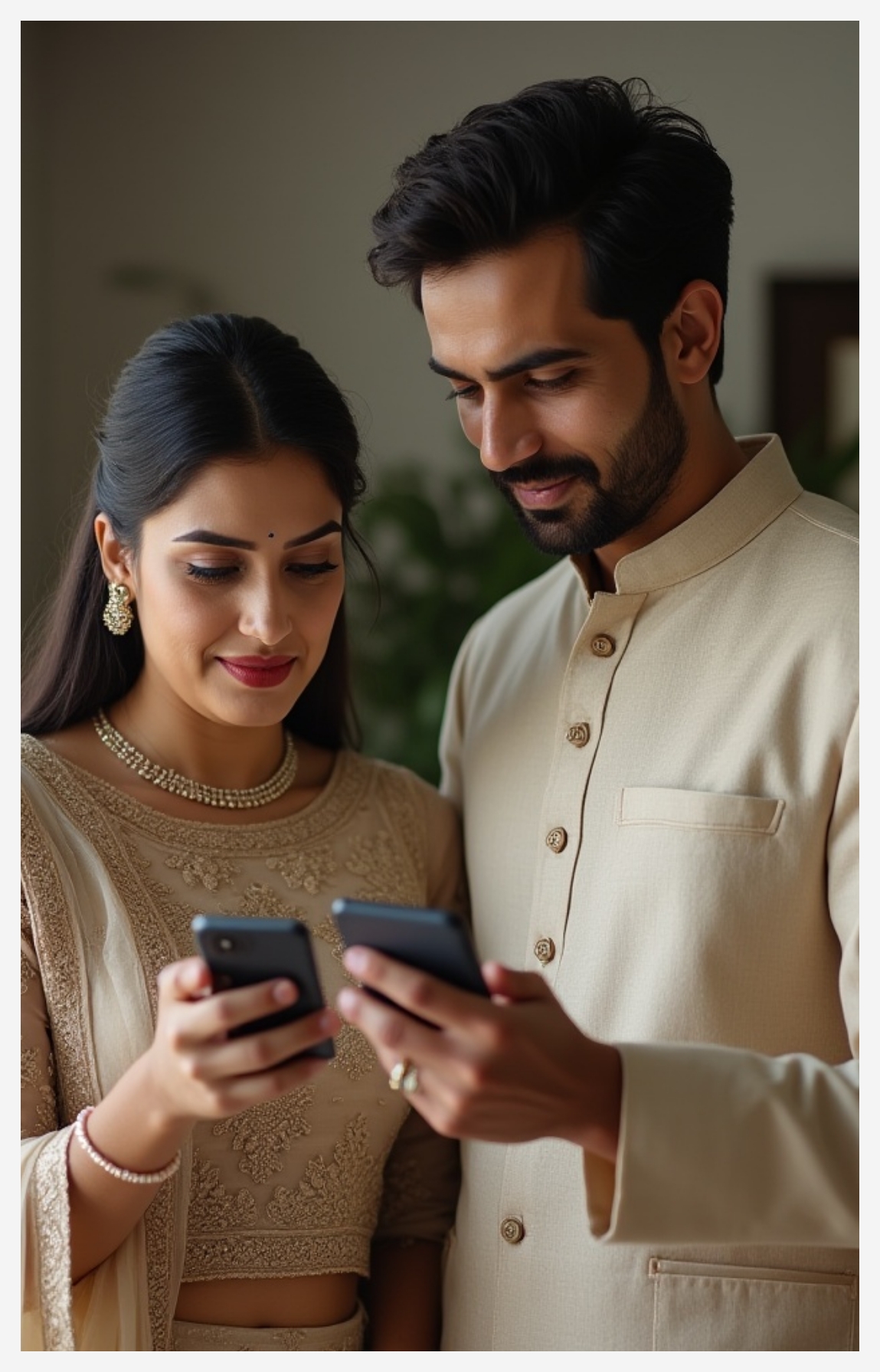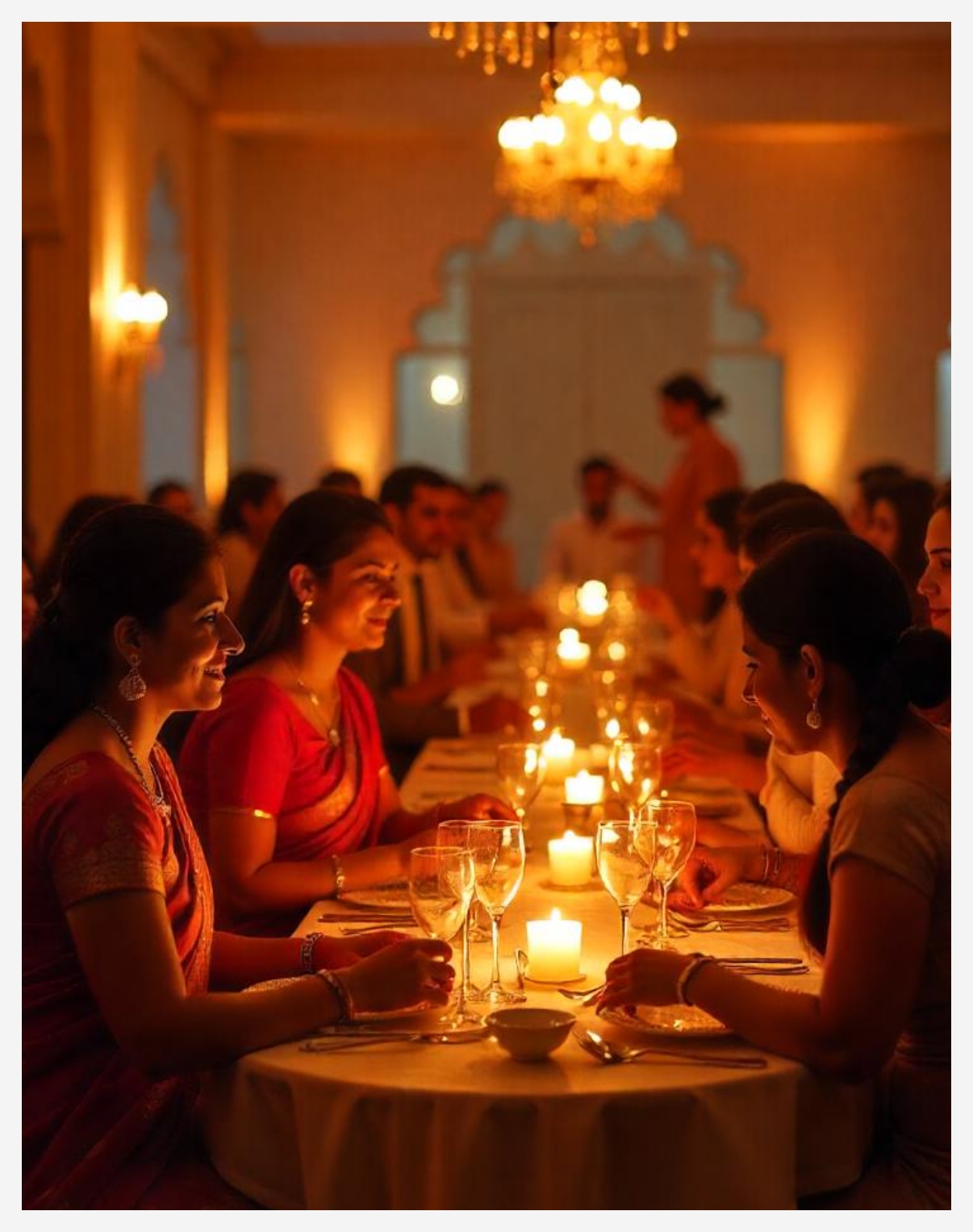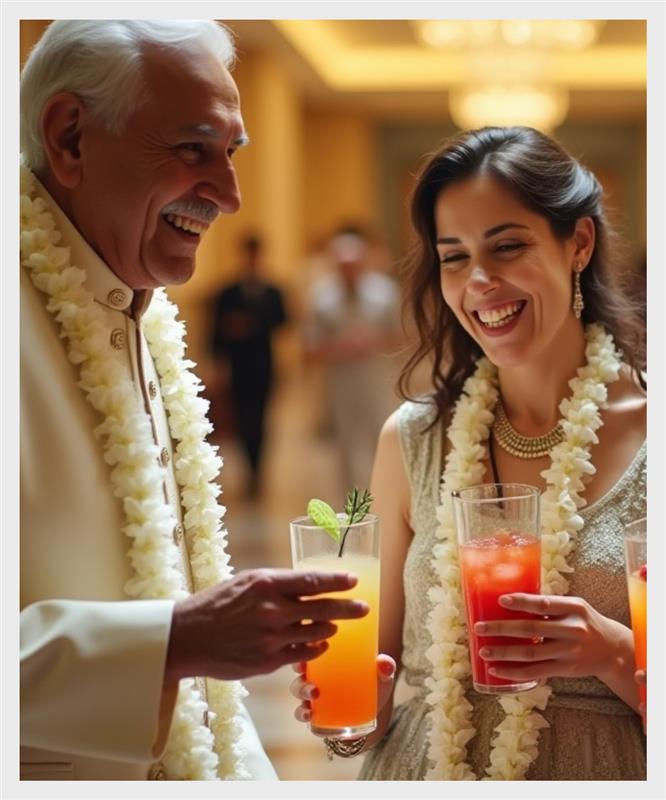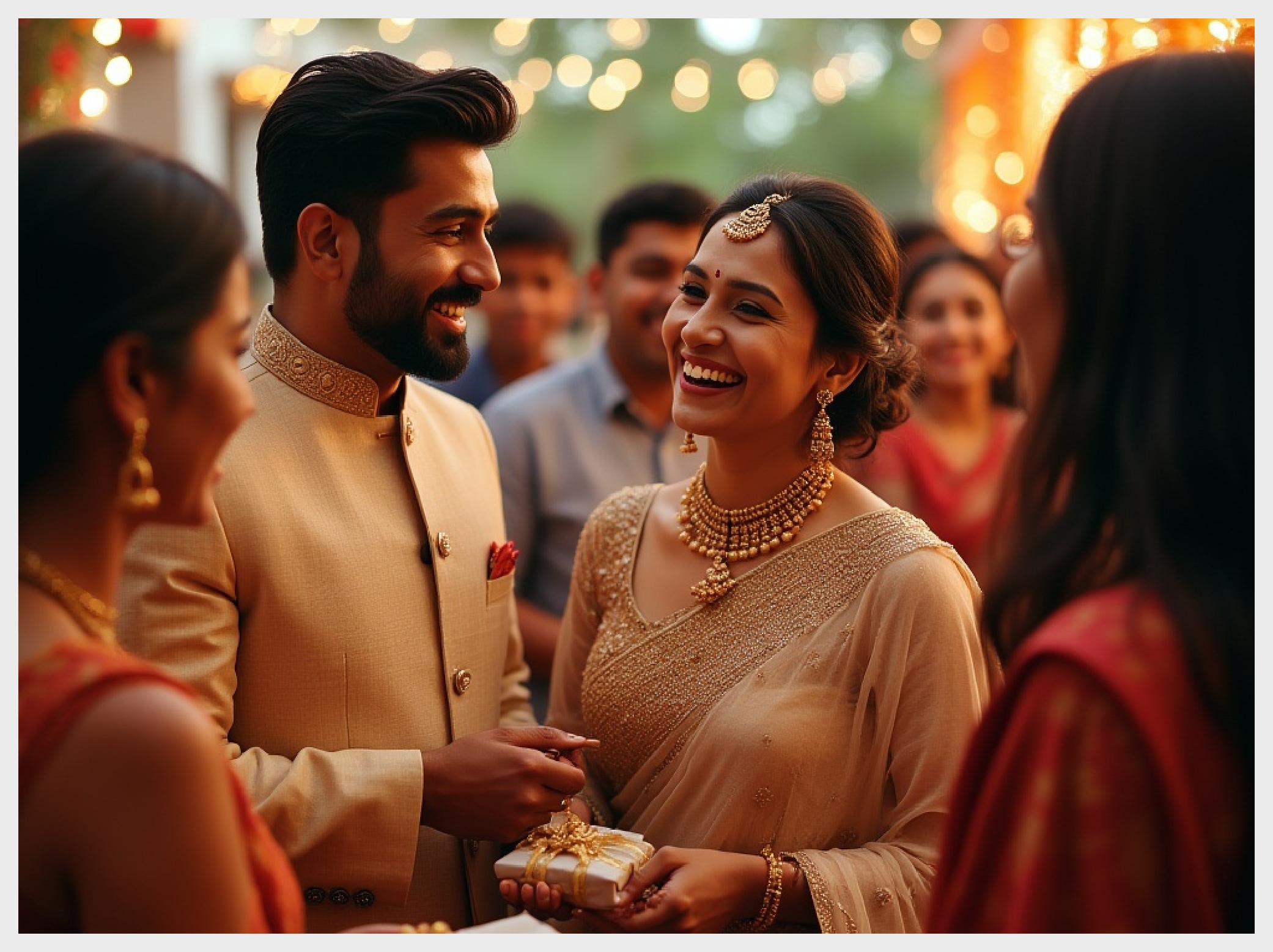In the grand theatre of Indian weddings — with their dazzling outfits, overflowing guest
lists, and multi-day rituals — one tiny acronym often gets completely overlooked:
RSVP.
It’s printed on the invitation. It’s whispered by concerned brides. It’s chased down by
frustrated cousins managing logistics. And yet, it remains the most ignored part of the
wedding planning process.
But Does RSVP Really Matter In India?
The short answer: yes, now more than ever. The long answer? Let’s unpack the cultural baggage, modern complications, and the quiet revolution that’s changing how Indian couples approach RSVP etiquette — and why it might just save your sanity.
The Legacy Of “Sab Chalta Hai”
Traditionally, RSVP wasn’t a
concept that belonged in Indian
households. Weddings were
sprawling, open-invite affairs. You
didn’t ask if someone would come —
you assumed they would, and
sometimes with extended family,
neighbors, and even the wedding
band from the last function they
a ended. The more the merrier,
they said. No one counted plates.
No one tracked names. Abundance
was the aesthetic, and
unpredictability was part of the
charm.
That approach worked — back when
weddings were held in courtyards,
food was cooked by relatives, and
the guest list was defined by word-
of-mouth. But today’s Indian
weddings are a different beast.

Modern Problems Require Clear Answers
Now, weddings happen in
destination resorts and boutique
hotels. Meals are plated, not
piled. Room bookings need guest
names. Travel logistics span
states, countries, and airports.
Brides and grooms no longer
simply hope guests will show up
— they need to know when,
where, how, and with whom.
An unconfirmed guest isn’t just a
mild inconvenience. It could
mean food waste, empty tables,
missed room reservations, or
last-minute chaos that makes a
perfectly planned wedding feel
uncomfortably disorganized.

When you don’t know how many people are coming to the Haldi or the Reception, you
can’t finalize catering quantities. When someone forgets to mention their plus-one until
they arrive, you scramble for chairs, meals, and sometimes even entry badges or welcome
kits.
In an age where everything from photography to florals is booked and budgeted down to
the last detail, leaving guest a endance to chance feels like a risk few couples can afford.
Why Guests Still Don’t RSVP
So If RSVP Is So Essential, Why Do So Many Guests Ignore It?
Part of the answer lies in habit. People aren’t used to being asked. There’s also a strange sense of guilt — some don’t want to say “no” because they fear it might offend the couple. Others procrastinate until travel plans are finalized. Many simply assume that informing one family member means the message is conveyed. In some cases, the invite never even reaches the person properly — buried in WhatsApp, lost in email, or forgo en in a stack of physical cards.
Add to that the technical hurdles: clunky RSVP links, confusing forms, or too many communication channels. The friction adds up — and guests fall through the cracks.
How To Make RSVP Matter — Without The Stress
The first step to solving RSVP avoidance in India is to treat it not as a demand, but as a courtesy. The message needs to shift from “tell us if you’re coming” to “help us plan your experience be er.”
When guests understand that an RSVP isn’t about exclusivity, but about making them feel welcome, they’re more likely to respond. That means personalized communication, not broadcasted WhatsApp messages. That means sending invites that clearly specify which events they’re invited to, and giving them a simple way to say yes or no. Technology can help — but only if it’s intuitive. A good guest management tool should allow guests to RSVP quickly, view their personalized schedule, and even update their responses if plans change. It should work across devices, feel welcoming, and take the awkwardness out of saying “no.”

For the couple, that same system should offer live RSVP tracking, breakdowns per event, and travel details — so that planning becomes proactive, not reactive.
The Emotional Payoff Of A Proper RSVP
Beyond Logistics, There’s An Emotional Reason RSVP Matters.
It tells the couple who will be there for their biggest moments. It helps them welcome each guest with warmth, not surprise. It ensures that return gifts are counted, welcome kits are ready, and that every guest feels seen and valued — not lost in a crowd.

Most Importantly, It Gives The Couple Peace Of Mind.
Knowing your loved ones are confirmed to a end — or having clarity if they can’t — makes it easier to let go of planning stress and fully embrace the celebration.
Summary
In a culture where weddings are deeply emotional and community-driven, it’s easy to
assume that formality doesn’t belong. But RSVP isn’t about being formal. It’s about
being
prepared. It’s about creating space for joy instead of confusion. It’s about le ing the
bride
and groom be present in their moment — not panicking over logistics.
RSVPs in India might have been optional in the past. But in today’s wedding landscape,
they’re the quiet key to a celebration that’s seamless, respectful, and truly unforge
able.



